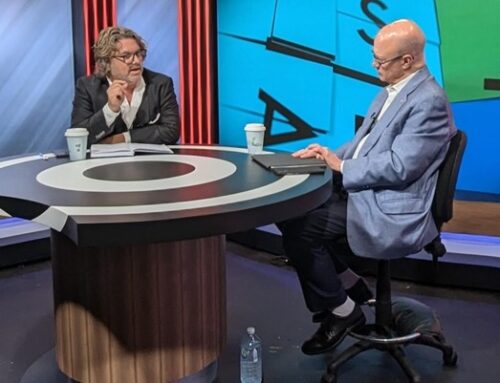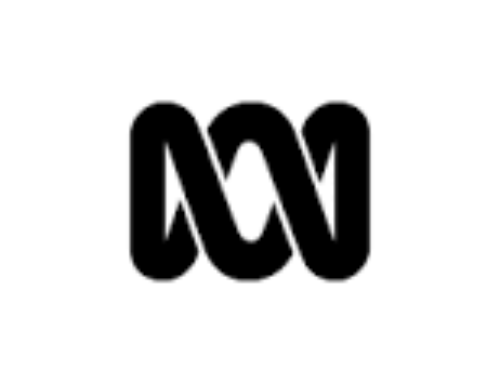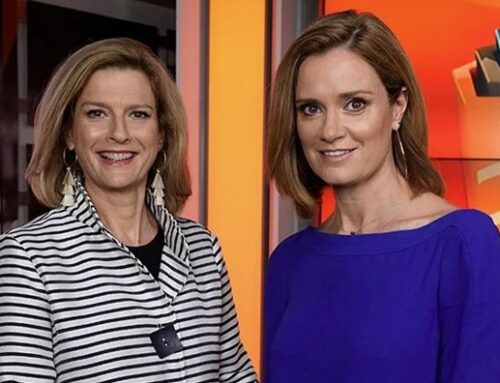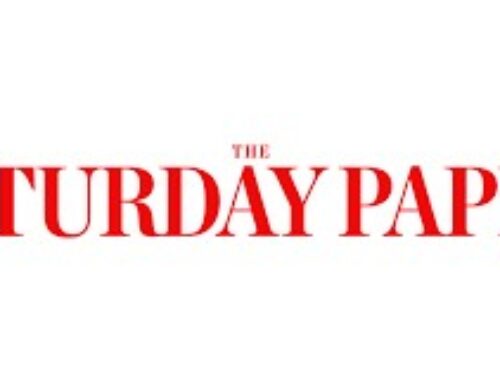Can Kim Williams resolve the ABC turmoil?
The Saturday Paper | February 3, 2024 | Quentin Dempster
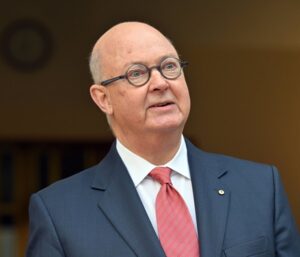 As a child, Kim Williams was obsessed with Lego. At the age of 11, he became the national champion. His mind has always been analytical. He has always wanted to be excellent.
As a child, Kim Williams was obsessed with Lego. At the age of 11, he became the national champion. His mind has always been analytical. He has always wanted to be excellent.
In business, he has a reputation as a fierce interrogator of data. His management style is fixed on the practical pathways defined for him, by his own thorough knowledge of that data – daily, weekly, quarterly, yearly, financially.
In the 10 years to 2011 he was chief executive of Foxtel, he produced gross revenues a tad short of $3 billion. He was helped by over-regulation, which for years delayed digital broadcast multi-channelling in Australia.
Rupert Murdoch was foolish to accept his resignation only 20 months after his promotion to chief executive of News Ltd, later News Corp. Williams was a victim of the Murdoch old guard, mainly Peter Blunden in Melbourne and Chris Mitchell in Sydney, who denounced his digital-first transition strategy aimed at bringing the Murdoch papers into a world dominated by Google and Facebook. The expression for the pushback against Williams was “grin-fucking”.
In the book he wrote after this period – Rules of Engagement – Williams deliberately avoided public recrimination with the Murdochs. In 2015, however, in an interview with the seniors magazine 50 Something, he gave this delightfully circumlocutory backhander: “Q: Do you feel in any way responsible for declining levels of News Corp’s revenues? A: I inherited settings that were on a very steep downward decline and required some fairly severe interventions and redirections. I make no apology for anything I did. The fact that the company has chosen a different path after I’ve gone does not seem to have redirected any of the outcomes they are experiencing. They are still experiencing a significant continuing decline that is affected by all digital technology.”
Since his departure from News in 2013, Williams has been doing consultancy and good, mainly non-commercial works. Earlier in his career, he had headed a series of arts boards. When Ita Buttrose and Communications Minister Michelle Rowland announced last year the ABC chair would soon be vacant, the appointed headhunters, Challis & Company, invited him to register for the advertised merit selection process now required by the Australian Broadcasting Corporation Act. It is significant to note that neither Williams nor the prime minister’s or minister’s offices allowed his name to enter pre-appointment speculation by eagle-eyed media reporters and observers. (In correspondence Williams notes he did not publicly lobby for the appointment and did not discuss it with Rowland or the Prime Minister until after cabinet’s decision.)
Had he been named in such speculation, there would have been objections from more than the Murdochs. Former chair of the Australian Film Commission, Phillip Adams, who once “disastrously” appointed Williams as chief executive, loathes him and forebodes disaster for the ABC. Adams, who hosts Late Night Live on ABC Radio but will finish up three months after Williams arrives, has told friends: “He kisses up and pisses down.”
When Prime Minister Anthony Albanese introduced Kim Williams as the next chair of the ABC on January 24, it was a surprise. Williams was an applicant for the position of managing director of the ABC in 2016, at the suggestion of his friend and then ABC chair Jim Spigelman. Declaring a personal conflict, Spigelman recused himself from the board’s interview panel and in the process Williams was dropped down the list. The job went to Michelle Guthrie, a former Google executive, who was said to be “Malcolm Turnbull’s pick”.
Now 71, Kim Williams will chair an ABC board currently comprising deputy chair Peter Tonagh, the former chief executive of Foxtel (appointed to May 2026); Peter Lewis, former chief financial officer of the Seven Network (to October 2024); Georgie Somerset, a specialist in regional development and agriculture (to February 2027); Louise McElvogue, an adjunct professor at UTS, former journalist, Convergence Review committee member and consultant to Channel 4 and the BBC (to October 2028); Mario D’Orazio, a former managing director of Channel 7 Perth (to May 2026); Nicolette Maury, a digital technology leader (to October 2028); and journalist Laura Tingle, who was elected by staff (to April 2028).
And then there’s David Anderson, the managing director on a recently renewed contract to June 2028. Anderson knows the incoming chairman and, according to my discreet inquiries, anticipates no personality clash as they are both data driven. Anderson, like Williams, has a creative commissioning background. He is responsible, according to his bio, “for commissioning some of the most successful Australian programs across all genres”.
Why is personality important here? It’s to do with the boundaries between chairman and managing director. According to voluminous articles and interviews about his brilliant career and personal life, Williams has exhibited explosive interpersonal behaviours that can irreparably damage relationships.
Williams told 50 Something Albert Einstein and Robert Oppenheimer were his role models in terms of discovery and learning. If he were ever reincarnated, he said, he wished to come back as a cellist or a physicist. Music has captivated him and he studied it at the University of Sydney, training as a clarinetist and composer. He describes music as one of the “most advanced areas of creativity in human endeavour”.
In the same interview he talked about the end of his marriage to his first wife, author Kathy Lette, and the beginning of his second marriage, to Catherine Dovey, the youngest child of former prime minister Gough Whitlam and his wife, Margaret: “When Kathy left me I was pretty devastated. Catherine was already a very close family friend and so we just continued seeing each other as platonic friends until about five years later, our friendship actually blossomed into a romance. Catherine was probably Kathy’s closest friend, so there’s a kind of weird circularity about the whole thing.”
Next month, when Williams meets David Anderson and his fellow directors as chair of the ABC, he will find a five-year “digital first” strategy already in place. The ABC is currently second only to News Corp in the Australian media’s share of online audience. The ABC is beating Foxtel in broadcast video on demand. Radio audiences in aggregate, combining both AM and FM, remain reasonably strong, although some metropolitan programs and presenters are struggling to retain and build audiences. The ABC Listen app is a demonstrable success, as are iView and the ABC News app. People anywhere can now access live ABC TV on their smartphones.
The ABC is now a public cybercaster, broadcasting all of its content free on the internet, with links to its apps coming from tech platform users, a huge competitive advantage against the hard paywall of subscriber-only entities.
In that regard the future, with funding certainty, should look bright for the ABC. It does not, however, because of its now very limited capacity to create content across all genres after 10 years of destructive defunding. Through inflation and increasing production costs, the ABC will soon be running out of money with yet more “efficiency” drives and “restructures” – code for payroll savings, redundancies and the axing of some programs – being devised by Anderson. ABC Alumni, an association of former staff and ABC supporters, will soon publish research that will expose the systemic decline of the ABC by content category, confirming current perceptions.
Williams acknowledges the ABC has a “comprehensive” content obligation under the Australian Broadcasting Corporation Act and cannot rest on past glories. He describes the ABC as “bland”. After more than 1000 experienced program-makers have been made redundant since 2014, the ABC is clearly a gravely depleted creative force in Australia.
Most of the success metrics assessed by the ABC board are measures of audiences, or ratings, now aggregated across all transmission platforms. ABC supporters argue that while ratings are an indicator of relevance, a more important measure in a now broiling sea of global content providers is original Australian programs, particularly the thought-provoking quality of such offerings.
Only through a critical mass of quality Australian programs in news and news analysis, drama, documentary, information, entertainment, sport, music and the arts, can the ABC regain its place as a valued and loved cultural institution.
Kim Williams has five years to help rebuild the ABC. Over to you, Mr Chairman.
This piece was modified on February 3, 2024, to remove a reference to Williams’ influence over multi-channelling delays and to add a note regarding his appointment process. He is 71, not 72.
This article was first published in the print edition of The Saturday Paper on February 3, 2024 as “Chairman Kim”.

